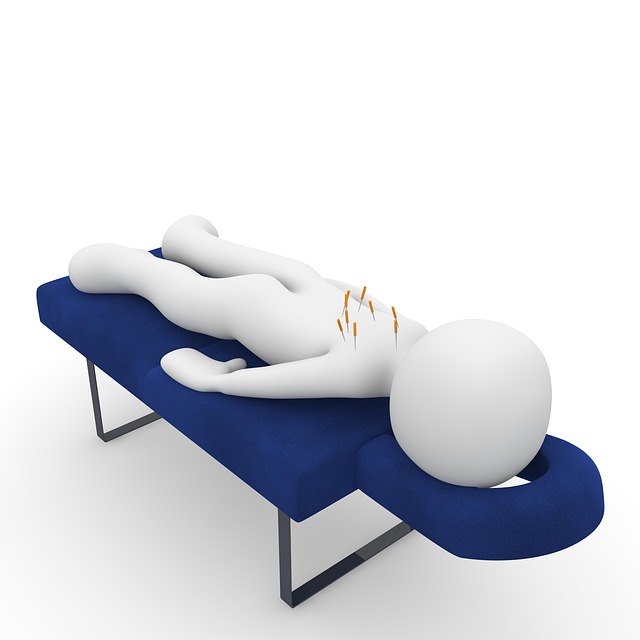Mental health support programs, through therapy, peer groups, and workshops, create safe spaces for individuals to learn coping strategies for stress, anxiety, and depression, fostering resilience. These programs, increasingly incorporating mindfulness techniques like meditation, enhance concentration and present-moment awareness, leading to increased satisfaction. Building community via peer networks breaks down isolation, offering mutual aid and support. Digital therapeutics, leveraging mobile apps and online platforms, revolutionize care by making it accessible globally, reducing costs, and catering to diverse learning styles.
“In our fast-paced world, empowering individuals to thrive requires a holistic approach to well-being, especially when it comes to mental health. This article explores transformative programs designed to unlock resilience and foster growth. From mental health support networks that offer crucial resources to innovative digital therapeutics, we delve into diverse strategies. Additionally, we examine mindfulness practices and the power of community peer support. By exploring these avenues, individuals can navigate challenges, enhance their mental landscape, and embrace a more fulfilling life.”
- Unlocking Resilience: Mental Health Support Programs for Overcoming Challenges
- Cultivating Mindfulness: Tools and Techniques for Enhancing Well-being
- Building Community: The Power of Peer Support Networks in Mental Health Journeys
- Digital Therapeutics: Innovative Programs Revolutionizing Access to Care
Unlocking Resilience: Mental Health Support Programs for Overcoming Challenges

Mental health support programs play a pivotal role in empowering individuals to overcome challenges and build resilience. These initiatives are designed to provide a safe space for individuals to express their feelings, gain insights into their mental state, and learn coping mechanisms. Through therapy sessions, peer support groups, and educational workshops, these programs equip people with the tools needed to navigate stress, anxiety, depression, and other mental health issues effectively.
The impact of such initiatives extends beyond individual transformation. By fostering a culture of mental well-being, these programs contribute to a more supportive and inclusive society. They encourage open conversations about mental health, reduce stigma, and promote early intervention, ultimately enhancing overall community resilience. This holistic approach ensures that individuals not only survive but thrive in the face of life’s challenges.
Cultivating Mindfulness: Tools and Techniques for Enhancing Well-being

In today’s fast-paced world, mindfulness has become a crucial tool for navigating the challenges of daily life. Mental health support programs increasingly recognize the value of cultivating mindfulness as an effective strategy for enhancing well-being. Through various techniques such as meditation, deep breathing exercises, and present-moment awareness practices, individuals can learn to quiet the mind, reduce stress, and foster a sense of calm.
These mental health support programs offer structured approaches to mindfulness, providing participants with practical tools to manage anxiety, depression, and other mental health concerns. By integrating mindfulness into daily routines, people can improve their overall resilience, enhance concentration, and develop a deeper appreciation for the present moment. This, in turn, leads to increased satisfaction and a sense of thriving in all aspects of life.
Building Community: The Power of Peer Support Networks in Mental Health Journeys

Building community is a cornerstone of any successful mental health support program. Peer support networks, composed of individuals with shared experiences, offer a unique and powerful resource for those navigating their mental health journeys. These networks foster a sense of belonging and understanding, breaking down isolation often associated with mental illness. Through open dialogue and mutual aid, members gain valuable coping strategies, build resilience, and discover a new perspective on their challenges.
Mental health support programs that incorporate community-building initiatives recognize the strength found in collective experiences. By encouraging connection and collaboration, these programs empower individuals to support one another, creating a supportive environment that enhances overall well-being. The power of community extends beyond individual growth; it fosters a sense of social responsibility and strengthens the fabric of support available within communities at large.
Digital Therapeutics: Innovative Programs Revolutionizing Access to Care

Digital therapeutics are transforming the landscape of mental health support programs, making care more accessible and convenient for individuals worldwide. These innovative programs leverage digital technology, such as mobile apps and online platforms, to deliver evidence-based therapeutic interventions directly to users’ devices. This shift has been particularly impactful during the digital age, enabling folks to access mental health services from the comfort of their homes, regardless of geographical location.
The integration of digital therapeutics into mental health support programs offers several advantages. It provides a cost-effective solution, reducing the burden on healthcare systems by making therapy more readily available. Additionally, these programs often employ interactive and engaging formats, such as gamification and virtual reality, to enhance user experience and adherence to treatment plans. This approach caters to diverse learning styles and preferences, fostering a more inclusive and effective therapeutic environment.
Mental health support programs, encompassing various initiatives like resilience-building, mindfulness cultivation, community peer networks, and digital therapeutics, are transforming lives. These programs empower individuals to navigate challenges, enhance well-being, and foster supportive environments. By integrating these innovative solutions, we can ensure better access to care and promote thriving communities, ultimately improving mental health outcomes for all.
